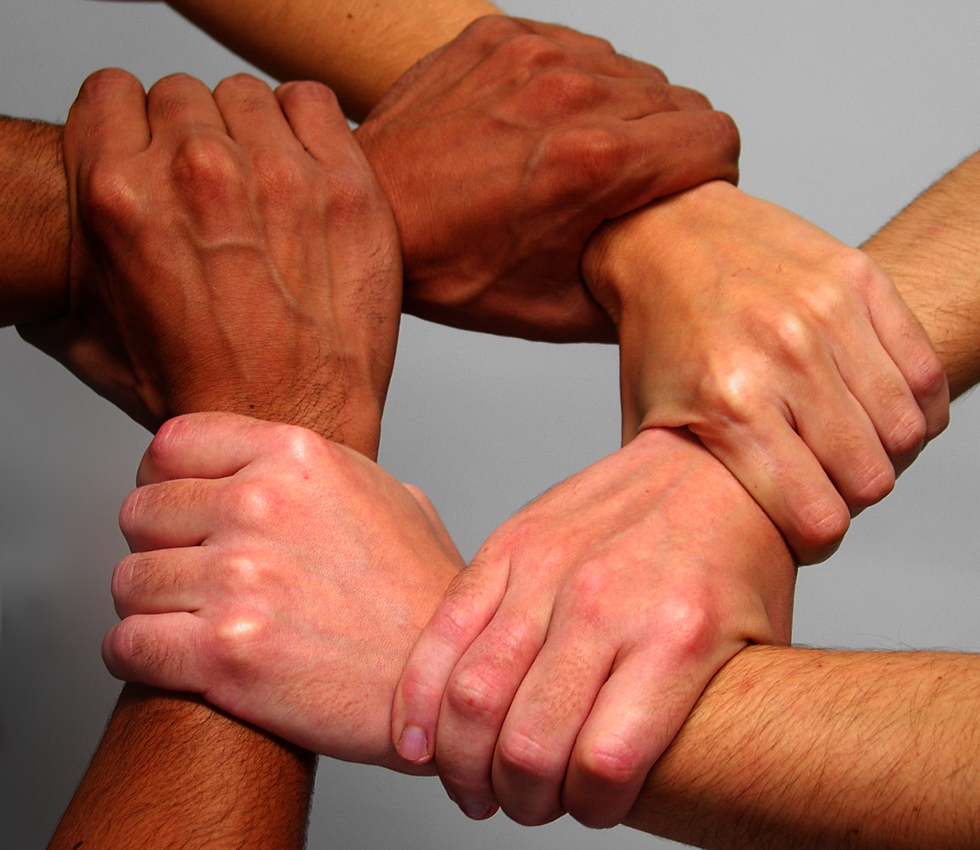Economic Democracy

Who Cares
As a country our decisions favor big business over local business, destroy the environment, and leave millions of people hungry and millions homeless, even though a quarter of our military budget could end poverty in the United States.
Locally our decisions are more caring, but less well funded. What we need is greater community-level democracy, because that’s the level where we see what’s needed, where we care enough to make that our priority, where every voice can make a difference, and where there isn’t so much big money corrupting our democratic process. With Common Good we can fund whatever we decide together is important, building a new economy within the mainstream.
Community control
This is the real power and purpose of the Common Good system: getting together as a community to decide what our funding priorities should be — for sustainable agriculture and energy systems, for local self-reliance, for ensuring that the community has access to healthy food, housing, health care, cultural enrichment, and satisfying work — then issuing Common Good credit to fund our decisions.
Community-centered, community-valued participatory democracy, with the power to fund our decisions – that’s what we call a Common Good Economy.
What will we decide? How will we solve the problems that confront us? Will we make wise decisions and act responsibly? Will the money we issue be justified by the material wealth it helps us create? Will we have faith in ourselves and trust each other enough to collaborate effectively?
These questions will be answered only with time. The power of Common Good puts the future in our hands. Let’s give it our best shot.


Decision-making for the common good
The Common Good system has built-in rules and a specific covenant members make with one another (the Common Good Agreement). These rules and agreements are the bare minimum needed for the system to function and to keep communities from stepping on one another’s toes. As much as possible is left to each community to customize and decide.
No central authority rules the Common Good system. That would undermine community-centered sovereignty. But financial misbehavior by a Common Good Community could hurt other participating communities. So each community accepts shared responsibility for oversight of its neighbors.
Common Good has developed a powerful combination of democratic practices— Common Good Democracy™ — and recommends communities adopt this hybrid system as a starting point before customizing their local decision system.
Economic democracy is crucial to economic justice and sustainability. In Common Good Democracy every voice counts. At the same time, it is designed to work well even in large diverse groups.
Common Good Democracy combines: Sociocracy, Liquid Democracy, Condorcet, Instant Runoff, Approval Voting, internet voting, town meeting-style discussions and a spirit of Consensus.
Decision Principles
Common Good Democracy embraces these core principles:
- In-person human contact can deepen trust, enhance creativity, and help build consensus.
- Everyone’s voice is represented equally, including children, people with mental disabilities, and others who cannot speak for themselves (Liquid Democracy is perfect for this).
- Active participation by all members is valued and encouraged (Sociocracy is perfect for this). Everyone has a piece of the truth.
- No one has to participate if they don’t want to.
- The decision process builds consensus and is not easily derailed by any individual.
- Decisions include reasons, time frames, and evaluation methods.
- Voting is easy and produces the most preferred widely-acceptable result, without trampling minorities (range-type votes, rating multiple-choice options, and Condorcet analysis work well for this).


Decision process — step by step
Each Common Good Community is responsible for adapting these steps to its own situation, to maximize community-centered economic democracy.
Discuss an issue. The community’s Trustees or any member may propose an issue for discussion and decision. Typical issues might include:
- Setting the community’s funding priorities for the coming year.
- Considering specific investments or grants to advance the common good locally and elsewhere.
- Funding incentives for healthy purchase choices or sustainable business practices.
- Creating new businesses for local independence and resilience.
Members narrow the discussion to a handful of options.
Formulate the Question. The Trustees formulate a written question and written options to be voted on, along with a brief explanation of each option, and announce a vote. Each question is multiple-choice, a range, or a “penny vote” (for budgeting). Typically the voting period is seven days.
Vote. Members vote online or in person at a community center. Voting directly or by proxy, the member can change votes anytime before the voting period ends.
Results. Results are announced automatically online. Partial results are NOT disclosed while the voting is open, because that can lead to dishonest “strategic” votes and “follow-the-leader” votes — both of which detract from the wisdom of the crowd.
Objections. Voters are encouraged to “veto” an option if they have a moral or ethical objection, always giving a reason for the veto. If any winning option is vetoed by 5% or more of the voters, the issue goes back for further discussion.
